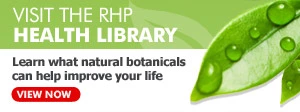[Printable Version of This Page]
7 Nutrients That Help Increase Muscle Tone
If you’re looking to achieve a lean, strong body, you’re going to want to make sure your diet includes the right mix of minerals and vitamins.
Many think that curbing your caloric intake is the only thing that leads to an amazing body. However, if you’re not consuming the right amount of nutrients, you’re not going to shed weight or tone and strengthen your muscles.
When you curl or bench press, the muscles break down and cause minuscule tears in the fibers. As you rest, the body uses that time to rebuild and strengthen, but it needs the proper nutrition in order to do so. The experts recommend the following seven vitamins and minerals to see a noticeable transformation in your body from head to toe.
1. Vitamin C
Loading your plate with color can lead to toned and well-defined arms. Vitamin C can be found in a variety of fruits and vegetables and is at the center of healthy blood vessels. It’s also a building block of collagen which is a necessary material needed to build strong bones and muscles.
In order to get the proper recommended nutritional requirement each day, take 75 mg. supplement or consume a cup of strawberries, medium orange or half of a red bell pepper.
2. Fish Oil
Omega-3 fatty acids are the right component for effective weight training and increasing the blood flow to support the muscles. It’s also a faster mode of recovery and can decrease inflammation in sore and tired muscles. The fatty acids found in omega-3 fish oil hold a variety of benefits such as toning muscles and preventing diabetes.
To get the proper nutrients, the American Heart Association recommends consuming two servings of fatty fish on a weekly basis. This includes items such as mackerel, herring, salmon, albacore tuna or sardines. For those that can’t tolerate fish, you may want to try taking a daily supplement consisting of 1,000 to 3,000 mg. of DHA and EPA. Vegetarians can also enjoy the benefits of omega-3 by consuming hemp seeds, walnuts, chia seeds and algae based vitamins.
3. Calcium
Calcium is an important nutrient that builds strong and healthy bones and muscles. It goes hand in hand with weight lifting and helps the muscles contract and develop.
In order to get the proper nutritional values, you need to consume at least 1,200 a day. This can be found in dairy products, leafy green vegetables, dairy-free milk or supplements. If you go the pill route, stick to 500 to 600 mg. and space them hours apart to avoid stomach upset. It should also contain vitamin D to help your body absorb the calcium quicker.
4. Magnesium
When it comes to magnesium, most women find themselves lacking. This is an important nutrient that keeps your muscles strong, and your heart beating steady. It’s also great for muscle recovery, cramps and can alleviate PMS symptoms.
The daily recommendation is anywhere between 310 to 320 mg. For individuals that lift weights more than three days a week, you can increase your intake to 400 mg. Magnesium can also be found in foods such as whole grains, legumes, spinach and kale or using Epsom salt in your bath water.
5. B Vitamins
If you’re looking to gain muscle and strength, B vitamins play an important role and include B1 (thiamin), B2 (riboflavin), B3 (niacin), B6 (pyridoxine), B7 (biotin) and B12 (cobalamin). Each of the essential vitamins are essential to maintaining proper health from energy boosting and metabolism to breaking down fat and carbs and maintaining a health nervous system.
B vitamins can be found by consuming a basic diet of whole grains, lean meats, eggs, nuts, leafy green vegetables, legumes and fortified cereals. Since B12 can only be found in animal sources, vegetarians and vegans may want to eat fortified foods and beverages or try taking a supplement that consists of 2.4 (mcg) on a daily basis.
6. Vitamin D
It seems that everyone is touting the benefits of the “sunshine” nutrient. Some of its magical powers include mood lifting properties, strong immune system and muscle tone. In order for your muscles to contract, grow and function, your body needs sufficient vitamin D. It’s also important for bone development and strength.
Most people get adequate vitamin D through their exposure to the sun, but you could be at risk for skin cancer. Instead of risking overexposure to the sun, you could take 4,000 to 6,000 (IU) of D3 every day. Your primary physician can also draw blood to measure your levels to ensure you’re getting an adequate amount.
7. Vitamin E
The next time you reach for a snack, grab a handful of almonds. They not only are a good source of vitamin E, they provide your body with protein, healthy fats and fiber necessary after a good workout. This amazing antioxidant also helps cells to recover and develop quicker after the stress of exercise.
Doses that exceed 300 mg. daily could lead to stomach pain, nausea, weakness or even death, so keep an eye on your intake. Try to stick with the recommended daily allotment of 15 mg. and consume nuts or seeds instead of a supplement.

![[Guarantee]](https://scripts.renownhealthproducts.com/rhp/images/money-back-guarantee.webp)
![[Renown Health Products: Proudly Providing Superior Grade Supplements Since 2002]](https://scripts.renownhealthproducts.com/rhp/images/rhpmain/design2/seal-285-240.webp)




